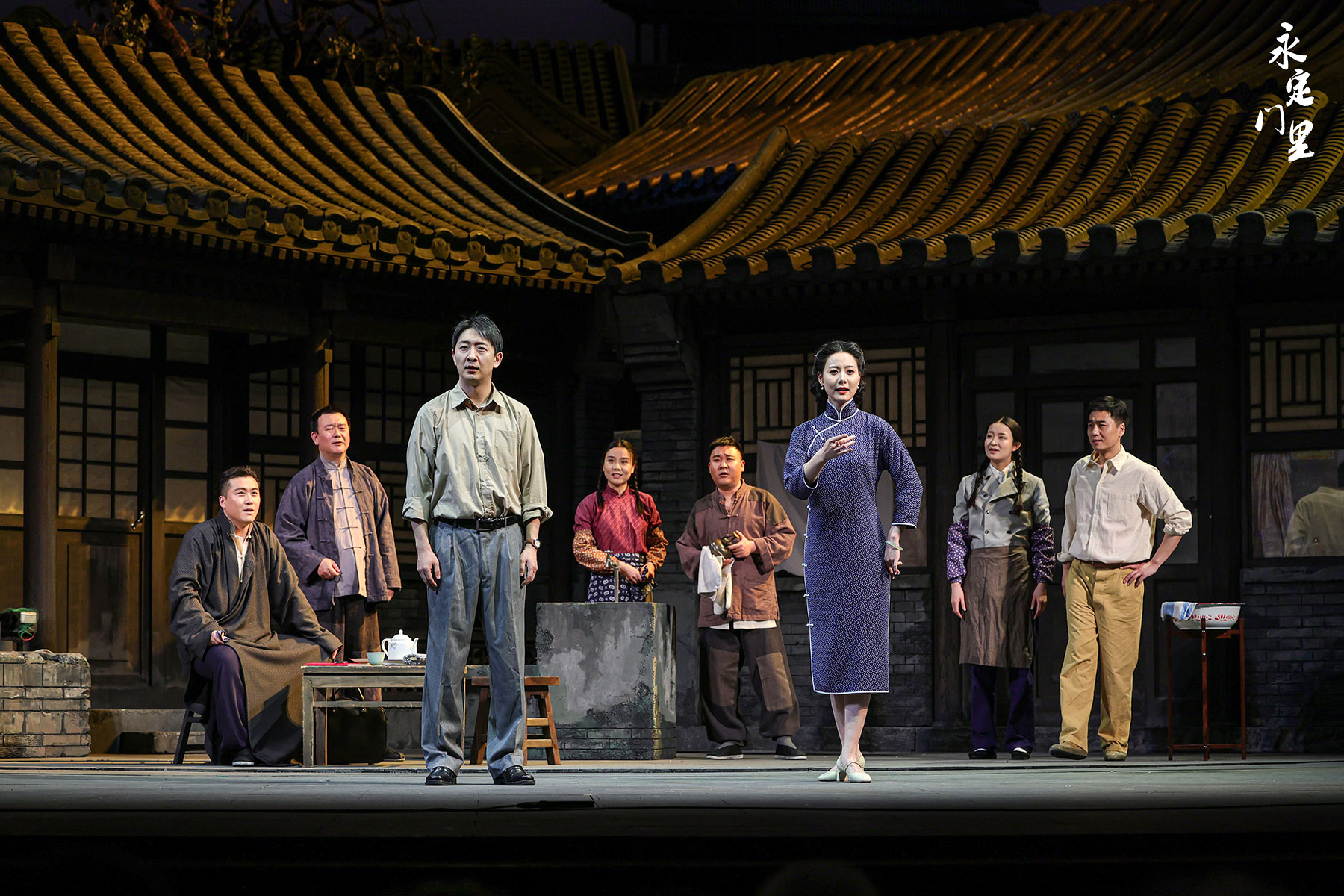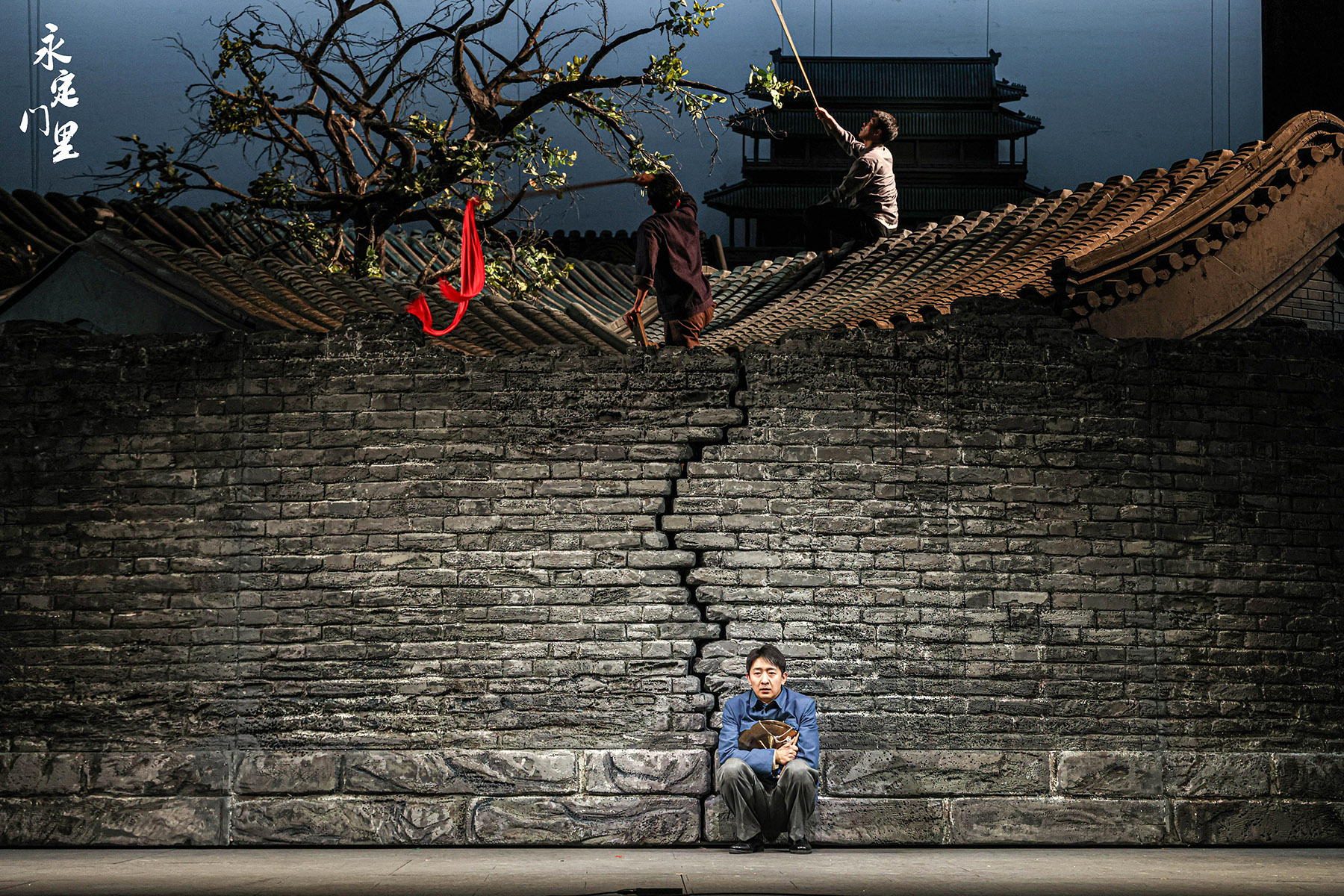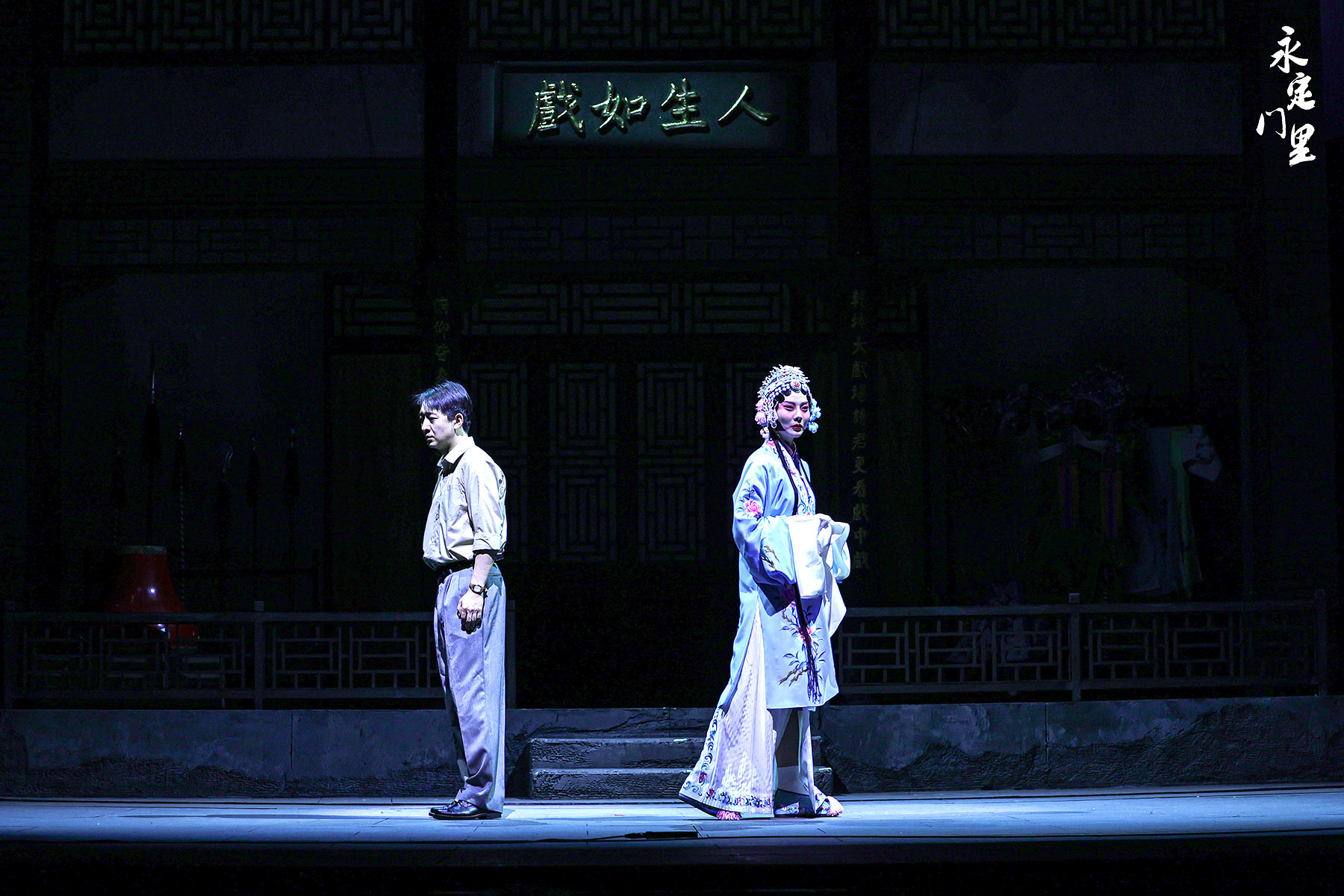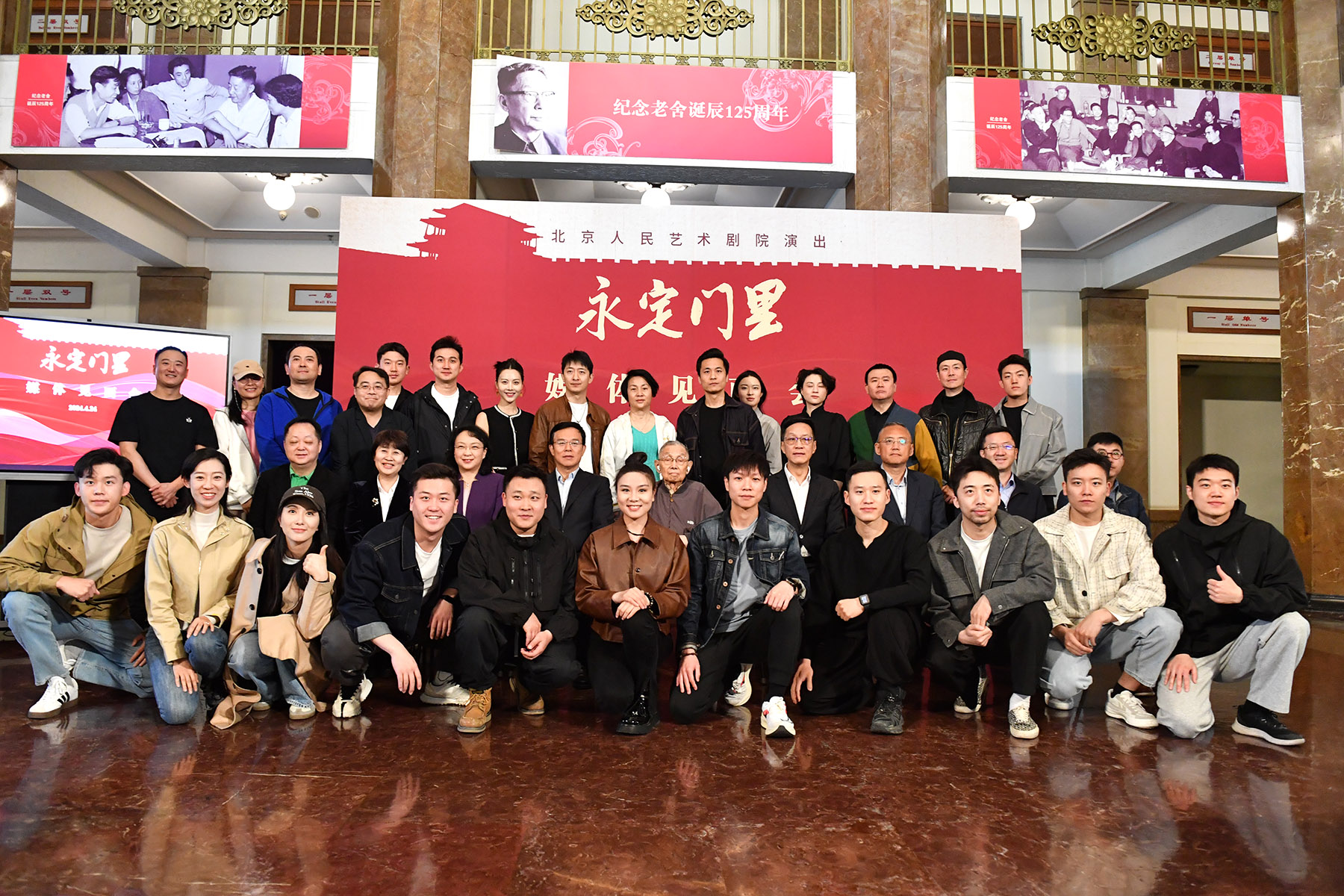The Beijing People's Art Theatre's latest production depicts stories set in the capital during three decades of New China's early history, Chen Nan reports.

Yongdingmen Li, the Beijing People's Art Theatre's latest stage production, premiered on May 1, with shows running until Sunday.
The play, which is set against the backdrop of the early days following New China's 1949 founding, features a pair of protagonists — Xiao Dali, a local police chief, played by Yang Mingxin, and Feng Jingbo, a teacher whose true identity is a Kuomintang secret agent, played by Miao Chi. The play sweeps audiences into a whirl of intrigue, rivalry and transformation, spanning more than three decades of Beijing's history.
I have a vivid memory of Beijing from the 1950s to ’80s ... My own experience enabled me to portray the scenes of old Beijing.
Liu Jinyun, scriptwriter
It's written by Liu Jinyun and directed by Tang Ye. Besides the two lead actors, the supporting cast, including Yuan Yu, who plays a famous Peking Opera singer, and Zhou Jiayu as Xiao's wife, also won applause for their performances.
The set design is a standout feature of the show, meticulously re-creating an authentic Beijing courtyard with lifelike details. The revolving stage, layered and dynamic, mirrors the passage of time and emotional complexities, while the lighting captures the characters' inner turmoil.
The Beijing People's Art Theatre, which was founded in 1952 and is considered a flag bearer of Chinese drama, is known for staging plays about Beijing. From Teahouse, a masterpiece written by luminary novelist and dramatist Lao She (1899-1966), to Wotou Compound, written by Liu Heng and directed by Lin Zhaohua, the theater has won a large fan base with its vivid portrayals of the city's cultural landscapes and people.
Yongdingmen Li is no exception, and has a distinctly Beijing flavor.

The play's opening scenes feature a silhouette of Yongdingmen, or Yongding Gate. Known as the "gate of eternal stability", and originally built in 1553 during the Ming Dynasty (1368-1644), it signifies that the nation remains stable and safe. It was rebuilt in 2004 and serves as a landmark sitting at the southernmost point of Beijing's 7.8-kilometer-long central axis — the line running through the middle of the capital.
In Chinese, yongdingmen li refers to the area inside the gate, where people used to live in courtyards tucked away in hutong, or narrow alleys — layouts distinctively vernacular to old Beijing.
The characters' backgrounds and dialogues are rooted in Beijing's real-life history, adding depth and authenticity to the storytelling. These historical touches, along with the play's nuanced characterizations, create a rich tapestry of the city's past. Scenes featuring old Beijing life, the local dialect and musical elements such as Peking Opera — a 200-year-old art form popular in the capital — appear in the play.

The scriptwriter, Liu Jinyun, says he started to write Yongdingmen Li over a decade ago. That was after he was commissioned by the Beijing People's Art Theatre to adapt Zhang Ce's suspense novel, No Regrets, into a play. Liu is known for plays including Uncle Doggie's Nirvana, which was codirected by Lin and premiered in 1986, and Ruan Lingyu, also directed by Lin and Ren Ming (1960-2022).
"I have a vivid memory of Beijing from the 1950s to '80s — the 30 years that the novel portrays," says Liu, 86, who graduated from Peking University with a major in Chinese language and worked as a Chinese teacher before he joined the Beijing People's Art Theatre in 1982 as a scriptwriter.
"My own experience enabled me to portray the scenes of old Beijing. I was also intrigued by the two lead characters, whose lives changed with each decision they made."
This new play, blending tradition with innovation, highlights the evolving nature of Beijing-themed drama.
Feng Yuanzheng, president, Beijing People’s Art Theatre
However, plans to bring the play to the stage were dropped for more than 10 years, until veteran actor Feng Yuanzheng became the fifth president of the Beijing People's Art Theatre in 2022. Feng decided to ask Liu and the theater's director, Tang, to stage the play.
"We all called him 'Uncle Jinyun' when he was the president of the theater," says Tang, who is also director of the play.
READ MORE: Tuning in to Beijing's charms
"He is warmhearted and loves working with young people. When I came to him with the idea of turning Yongdingmen Li into a play, he agreed and started to revise the script. We made lots of changes, deleting some plot points while adding new ones. He is very patient and works with us to make the characters and the lines appealing to today's audiences."

One of the most challenging parts of presenting the play was training young performers to speak Beijing dialect, Feng Yuanzheng adds.
He also says that the theater is going through a period when its older generation of actors are retiring and new performers are joining.
ALSO READ: Giving the gift of songs
"This new play, blending tradition with innovation, highlights the evolving nature of Beijing-themed drama, and explores new ways to portray the city's culture. The production not only tells a compelling story but also serves as a platform for young talent to shine, ensuring that the theater's legacy continues to thrive in modern times," Feng Yuanzheng says.
Contact the writer at chennan@chinadaily.com.cn


